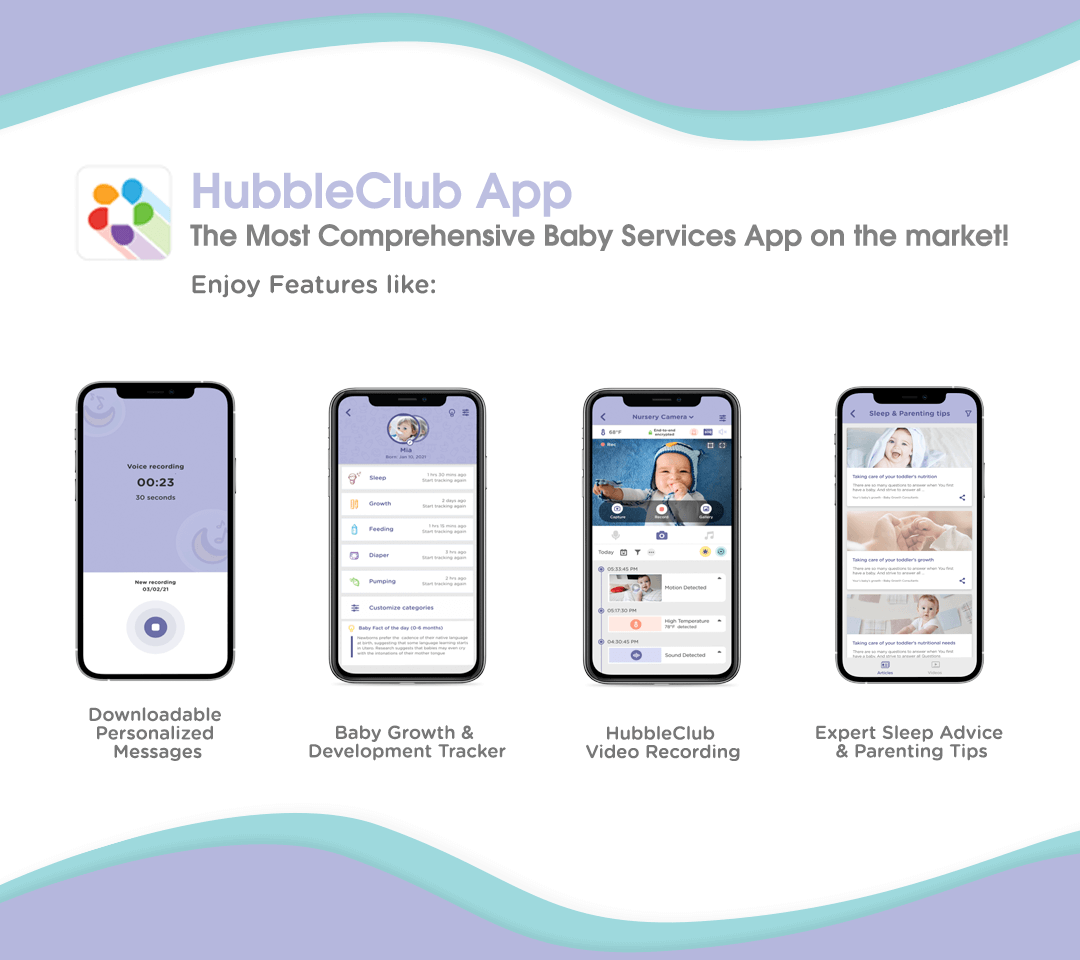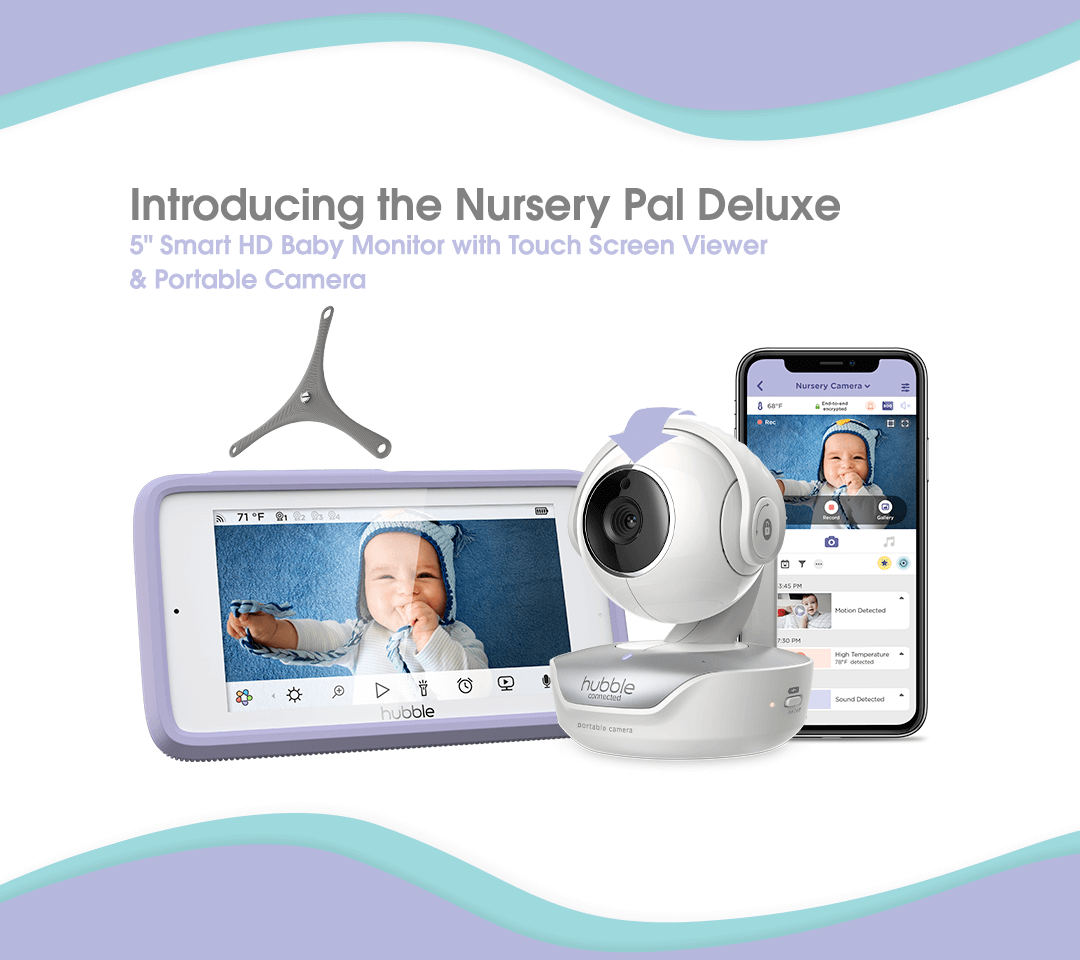Your Cart is Empty
February 05, 2021 5 min read

Pregnancy is a fascinating time in a woman's life. Near the end of a pregnancy, you may be feeling overwhelmingly anxious and excited to deliver your baby. While a full-term pregnancy lasts for 40 weeks, babies are sometimes born prematurely for natural reasons. A baby is considered 'premature' if it is delivered before 37 weeks of pregnancy. Sometimes, a doctor may induce pregnancy early due to risky health circumstances. Unless you have a valid medical reason and a medical professional advises premature delivery, it is essential for the health of you and your baby to carry it to term!
If it is safe to do so, it is crucial to carry your baby for the full term of pregnancy for many reasons. Changes and developments are happening in your baby for the entirety of the pregnancy, so even the final weeks and days are vital! In these last weeks of pregnancy, your baby will reach a healthy weight and finish developing essential organs like the brain and the lungs.
The earlier a baby is born in a pregnancy, the greater the risk it will not survive. If it does survive a premature birth, it is more likely to experience related health issues that may be short-term or lifelong. Premature births happen for a variety of reasons, and some of these reasons are still unknown today. However, there are steps to take before and during your pregnancy to decrease your chances of giving birth too early and risking yourself and your baby's health.
Forty weeks is officially a full-term pregnancy, and any babies born between 39 and 40 weeks are not considered to be 'premature.' At this stage, the baby has had the time to develop fully- and has a greater chance of being born in full health.
Learn more: Tips For Dads on Bonding With Their Baby
A baby born within this pregnancy period is considered 'early-term,' and it may not yet have a fully developed brain, lungs, or liver. Despite the proximity to the healthy 40 weeks, a baby born between 37 and 38 weeks of pregnancy is not fully physiologically mature. A baby delivered during this time frame is at a higher risk for adverse health outcomes and is more likely to have respiratory-related health issues in the short and long term.
A baby is considered 'early' when it is born anywhere between 34 and 36 weeks of gestation. The good news is that a baby born between 34 and 36 weeks of pregnancy is just as likely to be as healthy as a baby carried to full term! It is unlikely to experience any long-term health consequences. That being said, your baby will likely need to spend its first days or weeks of life in the NICU until it fully develops and can go home in a healthy and robust state.
Break the news: Ways to Tell Others You're Pregnant
When delivered between 32 and 33 weeks of gestation, a baby is considered to be born 'moderately early.' A baby is somewhat likely to experience dangerous infections, difficulty breathing, and feeding issues in this stage. One primary concern for a baby born in this stage is its weight. It will not have enough body fat to regulate internal temperature, so the baby must gain weight in this stage.
Babies born within this timeframe are considered 'very early.' They will undoubtedly require a prolonged stay in the NICU- they are still tiny in size and relatively underdeveloped in many areas. The good news is that a baby born in this stage is still somewhat unlikely to suffer from long-term health problems.
A baby born at 27 weeks of gestation is a 'very premature baby.' Survival rates are fortunately still very high at 95%, but a fourth of babies delivered in this stage will suffer from long-term health impacts like hearing, vision, and learning disabilities.
Be Ready For Your Baby:Baby Tech Gear
After only 25-26 weeks gestation, a delivered baby is considered a 'micro-preemie.' Babies born in this stage will need to stay long-term in the NICU and are very likely to face health issues the long-term. Twenty-six weeks is when a baby begins to develop alveoli, or air sacs, in the lungs. They will need breathing assistance following delivery because the lungs are not yet fully developed at this stage.
Micro-preemie babies born between 23 and 24 weeks are very tiny, delicate, and underdeveloped. Many babies born within this timeframe will need prolonged respiratory support because they cannot breathe on their own. Sadly, babies born this early have a low chance of survival. Few make it through the process of delivery and live to leave the NICU. If a baby delivered between 23 and 24 weeks survives, the odds are very high that it will have a neurodevelopmental impairment.
Delivering a baby before a full term of 40 weeks gestation comes with many potential health consequences. Luckily, there are some things that you can do before and during your pregnancy to reduce your risk of delivering your baby too early.
Hold your ownVirtual Baby Showerin the mean time!
There are many causes of premature birth and no 'one-size-fits-all' method of preventing it. However, there are some ways that you can decrease the chances of it happening in your pregnancy.
Some risk factors that increase your chances of giving birth prematurely are unavoidable. Women who experience diabetes, heart disease, kidney disease, or high blood pressure have greater chances of premature delivery. You can still take some preventative measures to reduce your chances, and some risk factors are avoidable.
Keeping your health in check is one of the best preventative measures that a mother-to-be can take to reduce the risk of giving birth prematurely. Ensuring that you have a healthy body weight by eating healthy and drinking plenty of water before and during your pregnancy is always a good start. We have all been told plenty of times, but cutting out alcohol and drug use is equally important! Keeping your stress levels low will also increase your chances of having a healthy, full-term pregnancy. Treat yourself with time to relax when you need it!
Progesterone is a female sex hormone that plays a critical function in pregnancy maintenance and healthy progression. There are some scientific studies out there that support the idea that progesterone treatments can lower the chances of having a premature birth.
Sometimes, premature birth is unfortunately unavoidable. In this case, it can only help to stay informed and get the best medical care available. No two pregnancies are the same, and healthy babies can be born in various pregnancy stages. Pregnancy is a stressful and exciting time for any mother-to-be, and remaining informed and taking steps to have the healthiest pregnancy possible is invaluable to you and your child's health.

June 21, 2021 3 min read

June 21, 2021 3 min read
and get $10 OFF your next Hubble Connected purchase.
.png?v=1627679689)

.png?v=1627679796)
.png?v=1627679828)



